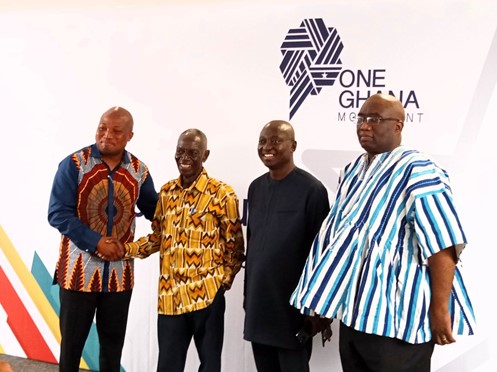The former Commissioner of the Electoral Commission (EC) and revered statesman, Dr. Kwadwo Afari-Gyan, has bemoaned the current state of local government systems governance in the country – calling for the prosecution of government officials responsible for unnecessary delays in the disbursement of District Assemblies Common Funds (DACF).
He described the current state of the initiative aimed at promoting decentralisation to deepen local development as a shadow of the actual practice that allows grassroots to get involved in the mobilisation and usage of their resources for community-level development.
With trends showing that disbursement of the DACF has never been punctual – with delays running into three quarters in some instances, he proposed the introduction of a policy to punish government appointees responsible for the delays.
As the practice of this undue delaying is attributable to both the two leading political parties which have been in government during the fourth republic, Dr. Afari-Gyan has proposed legislation to punish any finance minister or whichever person is found responsible for the delay; preferably with imprisonment for a defined period as a punitive measure to address the situation.
“It should be made an offence to delay the release of any statutory allocation of funds to the assemblies. The present system, whereby first and second allocations do not go six months into the year, should be made punishable with penalties that are enough to deter such practices,” he said.
He made these remarks at the Constitutional Day Public Lecture event organised by the One Ghana Movement in partnership with the University of Professional Studies Accra (UPSA) Law School, on the topic ‘Reflections on our democracy: The constitution, elections and the judiciary’.
Municipal, Metropolitan and District Assemblies (MMDAs) with the mandate to formulate and execute plans, programmes and strategies for effective mobilisation of the resources necessary for overall development of the district, as well as promote and support productive activity and social development, rely on the DACF as their main source of financial support in addition to internally generated funds (IGFs); but, unfortunately, the challenges they go through to assess this fund are uncalled-for.
The revered statesman thinks that the country cannot achieve any strong social development with the local government system’s current state. He described the constant appeals by chiefs and community leaders to central government for basic amenities as a classic example.
“Perhaps the failure of our local government system is best illustrated by frequent calls on the president and central government to provide toilets for towns and villages. Clearly, what we have now is a shadow and not the substance of decentralisation.”
Furthermore, he urged the abolishment of earlier ideas for a gradual devolution of powers, and instead giving the MMDAs real powers and resources to decide and do things on their own. Election of District Chief Executives and Municipal Chief Executives (DCEs/MCEs) for accountability to local people must be done on political party basis – but it should not be first past the post; rather, a mixed-party proportional formula.
Assembly Members Remuneration
Again, he believes that the current practice wherein elected members of the assembly (Assemblymen) are not given any form of resources to do their work is not acceptable and must be changed. He thinks they should be given some form of reward from the district assembly common fund, because members of parliament are getting a share of that without any legal basis.
Former Attorney General of Ghana and Minister for Justice, Marrietta Brew Appiah-Oppong, on her part seconded the call to punish state actors responsible for delays in the release of DACF for development at the district level, as this has been a major challenge to community development.
“Releasing funds on time has always been an issue from time immemorial, putting DCEs and MCEs under undue pressure to deliver on their mandate. Therefore, putting in place such a pragmatic policy will be of great help,” she said.
However, she expressed fear of such a policy not coming to fruition as both leading political parties have been found wanting in such practices: “I wonder if there would be the necessary political will to pass such a law”.
Other dignitaries present included Samuel Okudzeto Ablakwa, Member of Parliament for North Tongu; Joe Ghartey, former Attorney-General; and Samuel Atta Akyea, former Housing Minister.










